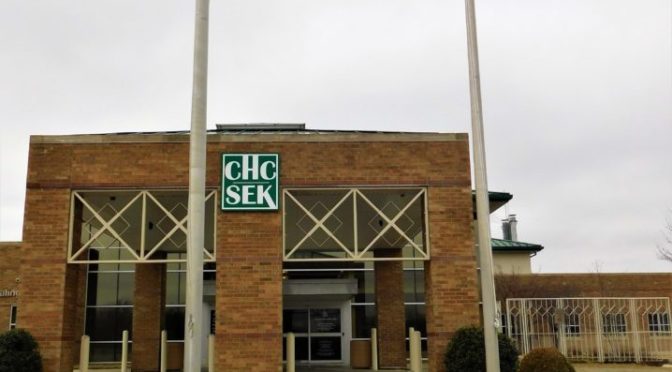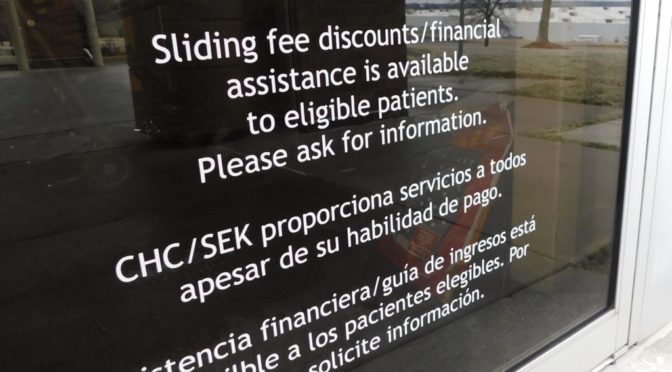Category Archives: COVID-19
COVID-19 Funeral Assistance
The COVID-19 pandemic has brought overwhelming grief to many families.
At Federal Emergency Management Agency, our mission is to help people before, during and after disasters. We are dedicated to helping ease some of the financial stress and burden caused by the virus.
Under the Coronavirus Response and Relief Supplemental Appropriations Act of 2021 and the American Rescue Plan Act of 2021, FEMA will provide financial assistance for COVID-19-related funeral expenses incurred after January 20, 2020.
We are working with stakeholder groups to get their input on ways we can best provide this assistance, and to enlist their help with outreach to families and communities. FEMA will begin to implement COVID-19 funeral assistance in April.
Additional guidance is being finalized and will be released to potential applicants and community partners as soon as possible. In the meantime, people who have COVID-19 funeral expenses are encouraged to keep and gather documentation.
 Fraud Alert: We have received reports of scammers reaching out to people offering to register them for funeral assistance. FEMA has not sent any such notifications and we do not contact people prior to them registering for assistance.
Learn More
Fraud Alert: We have received reports of scammers reaching out to people offering to register them for funeral assistance. FEMA has not sent any such notifications and we do not contact people prior to them registering for assistance.
Learn More
 FEMA will begin accepting applications for Funeral Assistance on Monday, April 12, 2021 through our dedicated call center. More information will be available on this page soon.
FEMA will begin accepting applications for Funeral Assistance on Monday, April 12, 2021 through our dedicated call center. More information will be available on this page soon.
Who is Eligible?
To be eligible for funeral assistance, you must meet these conditions:
- The death must have occurred in the United States, including the U.S. territories, and the District of Columbia.
- The death certificate must indicate the death was attributed to COVID-19.
- The applicant must be a U.S. citizen, non-citizen national, or qualified alien who incurred funeral expenses after January 20, 2020.
- There is no requirement for the deceased person to have been a U.S. citizen, non-citizen national, or qualified alien.
How to Apply
COVID-19 Funeral Assistance Line Number
Applications begin on April 12, 2021
844-684-6333 | TTY: 800-462-7585
Hours of Operation:
Monday – Friday
8 a.m. to 8 p.m. Central Time
If you had COVID-19 funeral expenses, we encourage you to keep and gather documentation. Types of information should include:
- An official death certificate that attributes the death directly or indirectly to COVID-19 and shows that the death occurred in the United States, including the U.S. territories, and the District of Columbia.
- Funeral expenses documents (receipts, funeral home contract, etc.) that includes the applicant’s name, the deceased person’s name, the amount of funeral expenses, and the dates the funeral expenses happened.
- Proof of funds received from other sources specifically for use toward funeral costs. We are not able to duplicate benefits received from burial or funeral insurance, financial assistance received from voluntary agencies, government agencies, or other sources.
How Funds are Received
If you are eligible for funeral assistance you will receive a check by mail, or funds by direct deposit, depending on which option you choose when you apply for assistance.
Additional Resources

South African Variant identified in Finney County
TOPEKA – A Centers for Disease Control and Prevention (CDC) Emerging Variant known as the South African variant has been identified in Kansas. An individual Finney County was found to have the B.1.351 variant. A case investigation is being conducted to determine how the person became infected with this particular variant of the SARS-CoV-2 virus, as well as if others may have been exposed. No further details are being released concerning the patient, including demographics.
The variant was determined through the whole genome sequencing conducted through the laboratories at the Kansas Department of Health and Environment (KDHE).
The B.1.351 variant was originally identified in South Africa in December and has been found in 31 states and territories in the U.S. At this point, it is not known to cause more severe disease and it is not clear whether it spreads more readily than other strains. Although this strain can reduce the effectiveness of some vaccines, vaccines still provide strong protection against severe illness and death.
“We continue to encourage people to take the appropriate precautions. This includes wearing a mask that fits snuggly around the nose and face and has multiple layers of fabric or layering thinner masks with an additional cloth face mask to improve the fit,” Dr. Lee Norman, KDHE Secretary, said. “Kansans should also follow isolation and quarantine recommendations, practice physical distancing, good hygiene, staying home if ill and getting the vaccine if you are able to.”
Another variant of concern, B.1.1.7, also known as the UK variant, has previously been identified in Kansas. There are currently 76 cases identified in 14 counties. This variant was first reported in the U.S. at the end of December 2020. Evidence from the UK indicates that this variant spreads much more quickly through the population and, given that fact, may rapidly increase the number of hospitalizations and deaths. More studies are needed to confirm this finding.
Testing is available and free for all Kansans. To find a location near you, visit: www.gogettested.com/kansas.
CHC/SEK staff receive White House Commemorative Easter Eggs

President Joseph Biden and First Lady Jill Biden sent Easter greetings to the staff of Community Health Center of Southeast Kansas this week in the form of Easter eggs.
“Your organization’s efforts are a testament to the hard work that needs to occur in order for our country to reopen safely,” read the letter from the White House. “The health and wellbeing of Americans remain an utmost priority to the President and First Lady, and your efforts and dedication are truly appreciated. On behalf of the President and First Lady, we wish you and your family a safe and Happy Easter!”
The commemorative wooden eggs were originally produced for the traditional White House Egg Roll held on the White House lawn each year. However, with the ongoing pandemic the event was canceled this year. Instead, the White House decided to send the eggs in recognition of community health workers.
“We are honored to be recognized by the President and First Lady for our efforts to make our communities safer and healthier,” CHC/SEK President and CEO Krista Postai said.
In March, the Biden Administration created the Community Health Center Vaccine Program and chose CHC/SEK among 250 Community Health Centers serving vulnerable populations in the country’s most underserved communities to receive COVID-19 vaccine directly from the government.
“With the Biden administration’s support, CHC/SEK has been able to distribute more than 22,022 vaccines to help us get closer to ending this pandemic,” Postai said.
COVID-19 Vaccine Help
Kansas Department of Health and Environment
Find My Vaccine
CHC Closing On Price Chopper Building April 9

New buildings/expansions are on the horizon for the Community Health Center of Southeast Kansas.
CHC is working on the purchase plan for moving from its’ Fort Scott present site to the former Price Chopper building on Main Street at 23rd Street.
The present site is the former Mercy Hospital building at 401 Woodland Hills.
“We are… closing on our purchase of the 40,000 sq. ft. Price Chopper Building in Fort Scott on April 9,” Postai said. “The plan is to combine our walk-in care and main clinic together. The renovation will start as soon as possible, with a goal of completion prior to the expiration of our current lease with Mercy in December 2022.”

There is also a new CHC building in Pittsburg.
“We have scheduled our groundbreaking for our new Medical Education Building in Pittsburg which will be home to all the students we are/will be training,” Postai said.
The groundbreaking will be May 3 at 12:30 p.m. at the John Parolo Education Building, south of the CHC/SEK System Office.
“About $5.6 million in donations have been raised to cover the full cost of the building and its furnishings scheduled for completion in the summer of 2022,” she said. “In the meantime, work continues on the establishment of a family practice residency program in Pittsburg in collaboration with Kansas University Medical Center and Via Christi/Ascension; the application for accreditation has been submitted with a ‘virtual’ survey planned this fall.”
CHC is planning a clinic in Chanute in the near future.
“We also bought 10 acres of land in Chanute on which to build a clinic in Neosho County,” she said. “Given all our other projects, it will probably take us 3-5 years to get this done.”
Continue reading CHC Closing On Price Chopper Building April 9
Critical Pandemic Response Maintained in Kansas
Governor Laura Kelly Signs Executive Orders to Maintain COVID-19 Response
TOPEKA – Governor Laura Kelly today issued several executive orders to ensure Kansas can maintain critical pandemic response efforts to keep Kansans healthy, keep businesses open, and keep kids in school.
The orders Governor Kelly issued today extend provisions put in place by previous executive orders and include some updated provisions.
“Since the pandemic began, my administration has been laser-focused on supporting and protecting our communities and our economy,” Governor Kelly said. “Extending these orders will ensure that our efforts will not have been wasted, and that Kansans and businesses don’t lose the resources they need to get back to normal.”
Several executive orders related to the COVID-19 pandemic were set to expire on March 31 in conjunction with the expiration of the state of disaster emergency. Senate Bill 40 includes a provision that revoked all executive orders related to the COVID-19 pandemic yesterday, but the Governor retains the authority to re-issue orders under the new process imposed by the bill.
The Governor today issued the following orders, which will generally remain in effect until rescinded or until the statewide state of disaster emergency expires, whichever is earlier:
- 21-09 – Extending professional and occupational licenses during state of disaster emergency
- 21-10 – Temporarily allowing notaries and witnesses to act via audio-video communication technology during state of disaster emergency
- 21-11 – Temporarily suspending certain rules relating to sale alcoholic beverages
- 21-12 – Licensure, Certification, and Registration for persons and Licensure of “Adult Care Homes” during state of disaster emergency
- 21-13 – Temporarily prohibiting certain foreclosures and evictions
- 21-14 – Establishing a face coverings protocol (exempts local jurisdictions with their own mask orders in place)
- 21-15 – Requiring COVID-19 testing in certain adult care homes
- 21-16 – Provisions related to drivers’ license and identification cards during the state of disaster emergency
- 21-17 – Temporary relief from certain unemployment insurance requirements during state of disaster emergency
- 21-18 – Temporary provisions for employer payment of income tax withholding for work performed in another state
- 21-19 – Temporary relief from certain tuberculin testing requirements during state of disaster emergency
- 21-20 – Extending time for Kansas rural water districts to hold annual meetings during the COVID-19 pandemic
- 21-21 – Temporary authorization for additional vaccinators during state of disaster emergency
KS Senate Bill Extends COVID-19 Response Health Care Measures
Governor Laura Kelly Signs Bill to Maintain Increased Access to Health Care Throughout the COVID-19 Pandemic
TOPEKA – Governor Laura Kelly today signed a bill to ensure Kansas can maintain pandemic-related provisions that increase Kansans’ access to health care across the state.
Senate Bill 283 extends the following COVID-19 response measures until March 31, 2022:
- The expanded use of telemedicine,
- The authority of the Board of Healing Arts to grant certain temporary emergency licenses,
- And the suspension of certain requirements related to medical care facilities and immunity from civil liability for certain health care providers and certain persons conducting businesses in Kansas for COVID-19 claims.
“The effects of the pandemic are far-reaching and long lasting, and continued support for Kansans is paramount,” Governor Kelly said. “This bill extends critical provisions that have expanded access to health care for a year – provisions that are still necessary to protect Kansans’ safety, keep our businesses open, and keep our kids in school.”
Kansas Travel Quarantine List Update
|
Kansas Phase 5 of COVID Plan Begins March 29
Governor Laura Kelly Announces Kansas to Move to Phase 5 of Vaccine Distribution Plan
~Starting Monday, March 29 all Kansans (16+) Eligible for COVID-19 Vaccine~
TOPEKA – Governor Laura Kelly today announced that starting next Monday, March 29, 2021, the State of Kansas will make the COVID-19 vaccine available to all Kansans (16+), entering the final Phase 5 of the Vaccine Prioritization plan.
“With the anticipated increase in supply from the federal government, we must get every dose of vaccine into arms quickly,” Governor Laura Kelly said. “I strongly encourage every Kansan to get the COVID-19 vaccine so we can get back to school, back to work, and back to normal.”
Kansas will become the 8th state to make the vaccine available to all adults, joining Alaska, Arizona, Florida, Georgia, Mississippi, Utah, and West Virginia.
As of March 26, 35.1% of the adult population in Kansas had received at least one dose of the vaccine.
In the early part of the vaccination program (December 2020 – February 2021), limited federal supply led to demand for vaccine consistently outstripping supply. However, the supply increases of recent weeks have reversed this situation. Local Health Departments (LHDs) and providers have started reporting a decline in demand despite the state opening to Phases 3 and 4 populations. To ensure no vaccine goes to waste, the Kelly administration decided to open eligibility to all Kansans.
Kansans are encouraged to use the Vaccine Finder tool to find the nearest location with available vaccine.
About the COVID-19 vaccines:
- COVID-19 Vaccines work: New England Journal of Medicine published a study on Feb. 24 that found researchers in Israel and the U.S. report that the vaccine made by Pfizer-BioNTech was highly effective in protecting against infection with the COVID-19 virus, lowering people’s chances of getting sick with the disease—especially severe disease—and dropping COVID-19 hospitalization rates.
- Scientists have been researching mRNA technology, which makes it possible to create a vaccine faster, for years to prepare for potential infectious viruses. This research and the high supply of volunteers for clinical trials led to the relatively quick development of the COVID-19 vaccines.
- COVID-19 vaccines must meet rigorous standards and have undergone the most intensive safety monitoring in U.S. history. The three COVID-19 vaccines had to meet safety and effectiveness standards to be approved for Emergency Use Authorization and have been evaluated in tens of thousands of participants in clinical trials.
Pandemic Disaster Emergency Declaration Extended
Submitted by Rebecca Johnson, Southeast Kansas Multi-County Health Department Administrator.
The state of disaster emergency declaration will be extended to May 28, 2021. Governor Kelly will re-issue the following order (among several others) and it will remain in effect until rescinded or until the statewide state of disaster emergency expires, whichever is earlier:
- 20-68 – Establishing a face coverings protocol: https://governor.kansas.gov/executive-order-no-20-68/
Also, Governor Kelly will not be re-issuing the order below and it will allow it to expire:
- 20-59 – Requiring COVID-19 mitigation procedures in K-12 schools: https://governor.kansas.gov/executive-order-no-20-59/
Governor Signs Orders To Protect Pandemic Recovery
Governor Laura Kelly Signs Emergency Response Bill, Will Re-Issue Executive Orders to Protect COVID-19 Recovery
~Executive orders to be revoked on March 31st will be reissued on April 1st~
TOPEKA – Governor Laura Kelly today signed a bill to ensure Kansas can continue providing communities with resources and support critical to the state’s COVID-19 response and recovery efforts.
Among other provisions, Senate Bill 40 modifies the procedure for the declaration and extension of a state disaster emergency under the Kansas Emergency Management Act, and extends the current disaster declaration to May 28, 2021.
“This bipartisan compromise will extend the State of Disaster Emergency that allows us to provide hospitals with PPE, support food banks and pantries, and otherwise respond to the COVID-19 pandemic,” Governor Kelly said. “The bill includes provisions that I do not support and that could complicate our emergency response efforts. But I will continue to work with legislators and local leaders to keep Kansans safe and healthy during this pandemic.”
Several executive orders related to the COVID-19 pandemic were set to expire on March 31 in conjunction with the expiration of the state of disaster emergency. Senate Bill 40 includes a provision that revokes all current executive orders related to the COVID-19 pandemic, but the Governor retains the authority to re-issue orders under the new process imposed by the bill.
On April 1, the Governor will re-issue the following orders, which will remain in effect until rescinded or until the statewide state of disaster emergency expires, whichever is earlier:
- 20-40 – Temporarily allowing notaries and witnesses to act via audio-video communication technology during state of disaster emergency
- 20-43 – Temporary relief from certain restrictions concerning shared work programs during state of disaster emergency
- 20-56 – Amended Licensure, Certification, and Registration for persons and Licensure of “Adult Care Homes” during state of disaster emergency
- 20-61 – Temporarily prohibiting certain foreclosures and evictions
- 20-68 – Establishing a face coverings protocol (the re-issued order will apply to all counties)
- 20-69 – Requiring COVID-19 testing in certain adult care homes
- 20-70 – Provisions related to drivers’ license and identification cards during the state of disaster emergency
- 20-71 – Temporary relief from certain unemployment insurance requirements during state of disaster emergency
- 21-01 – Temporary provisions for employer payment of income tax withholding for work performed in another State of Kansas
- 21-04 – Temporary relief from certain tuberculin testing requirements during state of disaster emergency
- 21-05 – Extending time for Kansas rural water districts to hold annual meetings during the COVID-19 pandemic
- 21-06 – Temporary authorization for additional vaccinators during state of disaster emergency
The following orders will not be re-issued and therefore allowed to expire:





 FOR IMMEDIATE RELEASE:
FOR IMMEDIATE RELEASE:
